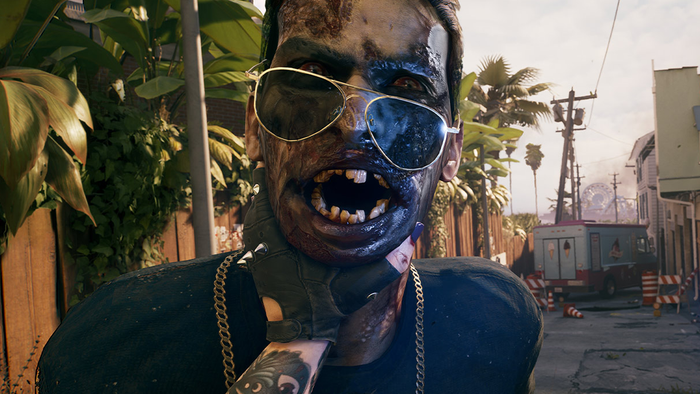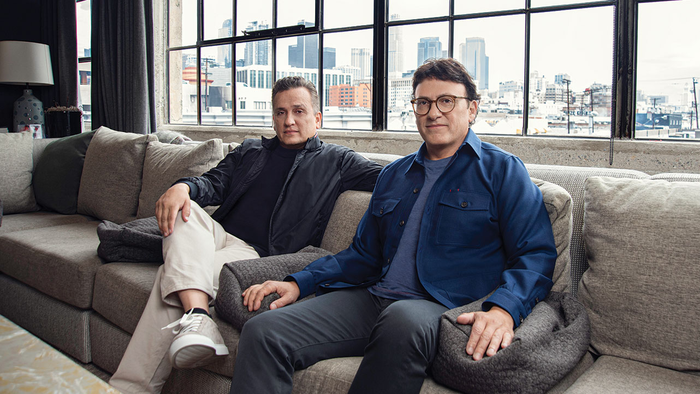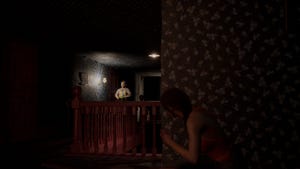
Featured Blog | This community-written post highlights the best of what the game industry has to offer. Read more like it on the Game Developer Blogs.
Games that made Me want to be a Better Person: Majora's Mask
Why Majora's Mask is such an important game, and an exploration of some of the characters.

Majora's Mask is about a lot of things. I think it's the closest a game has come to the equivalent of a collection of vignettes. There's the main narrative of the game, certainly, and you could pay attention to nothing else but that and still have a fulfilling experience. The heart of it, however, lies with the tiny portraits it paints of the lives of the people that inhabit this world. They're short, blunt little windows into who these people are, how they deal with situations, how they interact with other people, and it covers a lot of ground. It's about shame, fear, loss, bravery, friendship, greed, aspiration, family, duty, hope, loneliness, defiance... but, more than anything, to me, at least, it's about love.
From the smallest, forgettable detail to the largest, most obvious parts, there is something to be found that speaks, even ever so slightly, to the human condition. One of the major components, both mechanically and thematically, is the song of healing. When you learn it, you're told that it can heal a broken soul and give peace to those who cannot forget. Music soothes the savage beast, and all that. You play the song quite a lot in the game, and each time you do another story of another character unfolds.
Darmani, a Goron warrior, is one of the characters you have to play it for. He was the champion of a village, and it was his sworn duty to protect it. So, when he heard that a great demon had been wreaking havoc, he ran off to drive it away. He paid the price for his impetuous nature, and died shortly after.
Because of his regrets, and his sorrow that he wasn't strong enough to help his people, he remains chained to the world as a ghost, haunting his grave. When you find him and play the song, you see a vision of him suddenly standing in front of a crowd of villagers, all cheering and congratulating him. After knowing that his efforts will not be in vain if he helps you save them where he could not, he releases his spirit into a mask, essentially giving you the powers he had in life.
You heal a broken man who was once a proud warrior, by showing him that he is not unloved by his people, and you are rewarded for it both mechanically, by receiving the mask and his powers, and thematically, by the satisfaction of healing him.
To contrast a larger point to a smaller one, immediately after this exchange, you have to comfort a small child who misses his father. You’re told he also left to try and protect the village from this demon. You set out to find him, and when you do, you realise he’s a frail old man, clearly not long for this world, freezing to death. After you mention his son, he comes back to his senses for one brief moment as he tries to teach you a lullaby he played for him, but he can only remember the first half.
You return to the son and play the lullaby. He instantly recognises it, and instantly calms down; singing along with you, finishing the second half. Then you see a vision of the father playing the song on a drum, and cradling his son, who falls asleep thereafter.
It’s a much smaller point of focus, but just as before, you’re rewarded for it. Mechanically, by allowing progress in the game, and thematically, by realising that you’ve made an emotional connection with this child, by helping him calm down about missing his father. It’s a very simple point, but an effective one; a tiny window into the lives of these characters.
Of course, there is the longest side quest in the game, involving two lovers, Kafei and Anju. The two were to be married, until Kafei was magically turned into a child by the villain of the game, and his wedding mask was stolen by a theif – so, ashamed to meet with his fiancé under these circumstances, he ran away.
Anju’s mother is convinced that he ran off with the ranch girl, who it is implied has feelings for him. However, she refuses to believe her, and trusts Kafei implicitly. However, while she doesn’t doubt Kafei, she is worried that she might have done something wrong, or that she isn’t good enough for him.
After a lengthy series of events, you regain his wedding mask from the thief, but you become separated from him, and you have to run back to Anju by yourself. Eventually, you’re left to sit with her, only minutes before the world ends, waiting for him to show up – she believes in his word enough that despite the moon being moments away from colliding with the town, she would rather wait than take refuge.
Kafei does show up, mask in hand, although clearly very ashamed. She looks at him, seeing for the first time his childlike appearance, and then gets on to her knees so that the two of them are eye to eye. They come together in an embrace, and they sit there on the floor holding one another in a very powerful moment. They both look at you with a smile, and ask that you flee the town, but that they will stay and greet the morning together.
She accepts him for who he is, no matter what state he’s in. Despite his shame at his failures, and perceived weakness, she still loves him, and she still wants to be his life partner. We learn that even if we think we’ve done something wrong, or that we’ve failed somebody, if they love you, they’ll come to terms with it. It’s a tender story shared between the two of them, and it paints an important picture – that the two of them love and trust each other, so no matter what else happens, they’ll still have each other to rely on.
Then there are some of the smaller characters in the game. Gorman is the depressed leader of a group of travelling musicians. They’re unsuccessful, and their booking to play at the carnival is cancelled. You find Gorman in the milk bar sitting by himself, having not yet worked up the courage to tell the group that they’ve been cancelled. He starts to lament ever getting into the music industry, and begins to seriously considering returning to his two brothers, who he left to run a ranch so he could pursue his dreams.
You can get up on the stage in the bar and play a song that the manager of the band, who also happens to be in the bar, asks you to play, to see what it would have been like if they hadn’t have been cancelled. The song you play brings Gorman to tears; it’s the same song he heard at the carnival when he was a young boy that inspired him to get into the music business in the first place.
Again, it’s a very small moment in the game, and mechanically, it isn’t important to the main narrative, but the opportunity to help a jaded, miserable man remember why his dreams are so important to him, to remind him of the divine spark that drove him to better himself is a touching one.
There’s Mutoh, the angry carpenter who is trying to get the town ready for the carnival. He stoically refuses to believe that the moon is capable of crashing into the town, and tries to force his men to stand their ground with him. Ultimately, they flee when the moon comes close, and Mutoh is left to stand alone. Moments before it crashes, he taunts the moon, telling it to hurry up and crash, if it’s going to at all. However, he also voices worry about his wife, and whether or not she fled the town.
We learn that you shouldn’t try to force people to do anything; if Mutoh had have asked his men to stand with him, as his friends, and admitted that he was scared, too, then he may not have had to be alone, which would have made him feel much safer. Obviously the moon can’t be goaded into submission, so by his taunts we can assume that he is indeed scared. The only thing he could have achieved by taunting the moon is to make himself feel better, to try and convince himself that he was as strong as he wanted to be. Then, from his line about his wife, we know that despite having done bad things, he isn’t a bad person – his last thoughts are of his wife, and how safe she is. He does care about her, very much, he’s just scared.
If Mutoh hadn’t let his fear control him, if he hadn’t been so worried about trying to be strong, powerful, and brave, his situation would have been much better. If he had have just been open and honest with the people in his life that he cared about, he wouldn’t have been left standing alone in an empty town watching the moon about to crash on top of him.
Then there’s Shiro, a town guard who collapsed in the wilderness. He says he’s been there injured for years, waving his arms about and asking for help, but nobody has stopped to help him yet. Mechanically speaking, he’s invisible until you find the lens of truth, but he says it’s because he’s about as impressive as a rock, and he’s used to people ignoring him.
He asks you for a healing potion, and when you give it to him, he claims to feel much better. Of course, it’s doubtful whether or not he was even injured to begin with. It can’t have been that severe of an injury if he managed to survive without help for as many years as he claims.
It isn’t the potion that makes him feel better; it’s the act of giving it to him. The man feels bad because nobody has paid any attention to him at all in years, and it’s completely ruined his self esteem. The world ignores him, and he thinks it’s because he’s a worthless person, somebody who should be ignored. Greeting him, and giving him the potion, interacting with him at all proves that somebody has noticed him, that perhaps he isn’t as unimpressive as he now thinks he is.
There are dozens of characters in the game, and they’re all as valid as the next. Each of them is an interesting, brief slice of life, a small piece of who they are. This was a very bold game to make, not only because it was so different to the other titles in the series, but because it was different to most other mainstream games. Mechanically, there was the three-day system that set it apart, and gave it a very morbid tone. Thematically, it’s an incredibly rare title. How many mainstream games can you think of that are about love, and compassion, and fear, and togetherness?
Majora’s Mask was one of the biggest risks Nintendo ever took, and I’m glad they did. It’s a beautiful game, and it aptly illustrates a lot of different emotions. It’s a game that quite a bit of love clearly went into making, and it is an experience like few others. It’s made me look at the world in a different light, and it’s got one of the best messages of any game: be loving to people.
Read more about:
Featured BlogsAbout the Author(s)
You May Also Like













